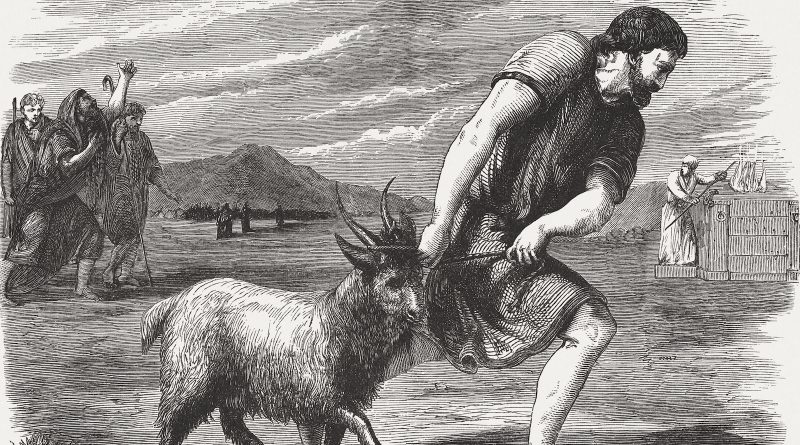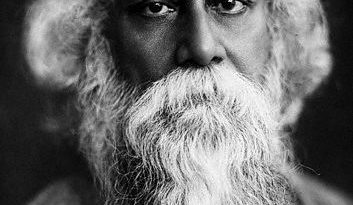Animal Sacrifices In The Name Of God
We’ve all heard of the ritualistic sacrifices of goats during Eid, haven’t we? These animal sacrifices, done in the name of God, is it okay?
TW: Blood, gore, animal abuse.
Indeed, religion has been warped into many shapes over the years to form excuses for a multitude of crimes. But this may be the worst one yet.
As seen in the above video, a woman supposed to be possessed by Kali Maa, the Hindu goddess of time, creation, preservation, and destruction, sits in a pit while a ‘poojari’ or a priest cuts open a goat and pours blood into the pit.
This is done to appease Kali and stimulate her violent vengeance against demons.
Note, it says ‘demons’ not ‘cute, innocent, little goats.’
And don’t we say all creatures are creatures of God? That we are all his/her children?
Why would God want us to sacrifice our own children to him/her? What kind of God would want that?
No deity or entity in any denomination of Hinduism (Hinduism is not one religion, it is the term for a large religious group) demands sacrifice. The skulls Kali is normally shown with are those of demons that she killed and have asked her followers to kill. Kali is a creator-god and war deity, specifically bearing a role in protecting man; though she is bloodthirsty, she doesn’t demand the blood of those she considers to be her children.
Also Check: BANNING ANIMAL CRUELTY: STEPPING INTO A BETTER WORLD!
So, then, these “sacrifices,” what are they but animal abuse?

Animal sacrifice normalizes killing and desensitizes children to violence against animals. What’s more, the way executioners handle, transport, and kill animals for sacrifices typically violates animal transport and slaughter laws, making it a punishable offense.
But while the Supreme Court bans illegal slaughter of cattle, it cannot interfere in animal sacrifices done for religious purposes as the Indian government cannot interfere in matters of religion.
A petition even pushed for the matter of causing the least suffering to the poor animals if it cannot be banned but it was denied as well.
“Animal sacrifice is not confined to any single religion. This petition has nothing to do with meat ban. The PCA Act provides for a procedure of killing of animals so as to cause them least pain and trauma. Why can’t it be followed during religious occasions?”
TW: Blood, gore, animal abuse.

As if this isn’t bad enough, a rough private estimate put the number of animals sacrificed every year during religious occasions at nearly 5 Lakh.
Worse than animal sacrifice is human sacrifice. Can you believe the last human sacrifice to a goddess was merely in 2017? It was a human toddler of 6.
What has religion come to if it can allow such atrocities?
When animal sacrifices were carried out in ancient times, it was because cattle were one’s most important source of food and income and to sacrifice it for God was considered selfless.
But in the modern era, while animals are important, they are not the most important. Maybe the most important would be “ignorance” and “refusal to move on from orthodox traditions.”
Wish we could sacrifice that.
However, animal sacrifice has been going on since ancient times and therefore cannot be eradicated completely. The first step should be to lessen the suffering of these animals.
During Eid al-Adha’s “Festival of Sacrifice,” an animal—usually, a goat—is sacrificed to Allah.
It honors Abraham’s willingness to slay his son Ishmael at Allah’s request, a supreme act of faith. But when Abraham held a knife to his son’s neck, Gabriel appeared and said he had already demonstrated his love for God. A goat was sacrificed in the boy’s stead.

In the Bible, God required animal sacrifices to provide a temporary covering of sins and to foreshadow the perfect and complete sacrifice of Jesus Christ (Leviticus 4:35, 5:10).
Animal sacrifice is an important theme found throughout Scripture because “without the shedding of blood there is no forgiveness” (Hebrews 9:22).
When Adam and Eve sinned, animals were killed by God to provide clothing for them (Genesis 3:21). Cain and Abel brought sacrifices to the Lord. Cain’s was unacceptable because he brought fruit, while Abel’s was acceptable because it was the “firstborn of his flock” (Genesis 4:4-5). After the flood receded, Noah sacrificed animals to God (Genesis 8:20-21).

Even Judaism talks about animal sacrifices in the Book of Leviticus 1:1 – 5:26. Contrary to the view that korbanot (animal sacrifice) in the Torah were for sins, their use was far more complex—only some korbanot were used to atone for unintentional sins, and these sacrifices only accompanied the important required core means of atonement to be ever considered legitimate.
Besides this one exception, there were the overwhelming majority of other purposes for bringing korbanot, and the expiatory effect is often incidental and is subject to significant limitations. Korbanot are brought purely to commune with God and become closer to him. Also, they were brought to express thanks, gratitude, and love to God.

As seen, animal sacrifice is a common phenomenon in the religious world and while each religion asks for a different type of animal sacrifice and the reasons for it may vary, we can all agree on one thing; in this modern age, an animal sacrifice is no longer a viable option.
The Bible removed the animal sacrifice part in the New Testament.
The Jews stopped the slaughtering of animals as well.
God asks for us to worship him/her with sincerity and love and to treat our fellow men with the same respect. Can we focus on that rather than these barbaric rituals?
Almost all religions agree that animal sacrifices are too barbaric to happen any longer. It is time we stopped following these rusted rules and treat these poor, cute, animals with love as well.
Stop #animalsacrifice #India pic.twitter.com/NFAnyj47bg
— Loknath Swain (@loknathswain) October 5, 2015
Indian Muslim mob beats a Muslim woman. Her crime? She wants to end the mass #AnimalSacrifice on #EidAlazha in India https://t.co/YhxIrGnC4c
— Tarek Fatah (@TarekFatah) July 1, 2016
Stop animal cruelty. Religion can no longer be used as an excuse for crime.




